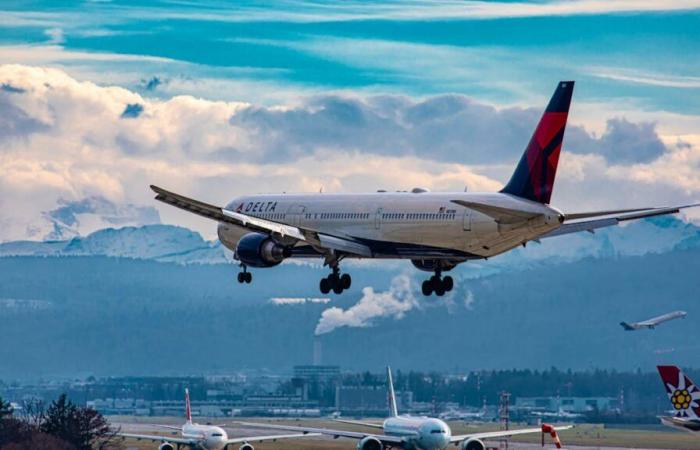Planes are expected to carry more than 5 billion passengers around the world this year. The International Air Transport Association (IATA) announces a record year in 2025 for the sector. According to the organization, prices should fall slightly internationally, but Switzerland will not experience the same trend. The Lufthansa group has announced that it will have to tax an additional 1 to 72 euros on tickets depending on the flight from January 1 due to new European Union requirements from January 1. Swiss and Edelweiss will also be affected.
According to the “Tages-Anzeiger”, the prices of tickets purchased in Switzerland are currently 15% higher than in 2019 and this is not going to stop any time soon. But inflation does not seem to frighten the Swiss who remain fond of air travel. A ranking established by IATA shows that with us, you have to work on average 0.8 days to afford a ticket. Only the Irish and Norwegians have to work less (0.5 days). Italians, French and British have to work a day and a half to obtain the same thing, while Indians have to put in 17 days of work.
This high purchasing power has repercussions on the frequency of flights. The plane is more coveted in Switzerland than in the United States, according to IATA with an average of 2.5 flights per inhabitant per year. And passengers on the European continent could be even more numerous next year, according to projections. One observer even fears that air traffic will be saturated.
“In Europe, we have already reached our limits this summer. If there are as many reservations as announced, it could become chaotic at airports during peak hours. An airline can make more planes available. But the airports and the airspace will not be any bigger,” warns Andreas Wittmer of the University of St. Gallen in the Tages-Anzeiger.
Neutral fuel late
The objective of the International Air Transport Association (IATA) would be to achieve carbon neutrality by 2050. But for the moment, the production of so-called “sustainable” fuels is lagging behind, notes the “Tages -Anzeiger”. In 2024, only one million tonnes of “green” kerosene were produced in the world, instead of the targeted 1.5 million. This corresponds to 0.3% of total aircraft fuel production.






